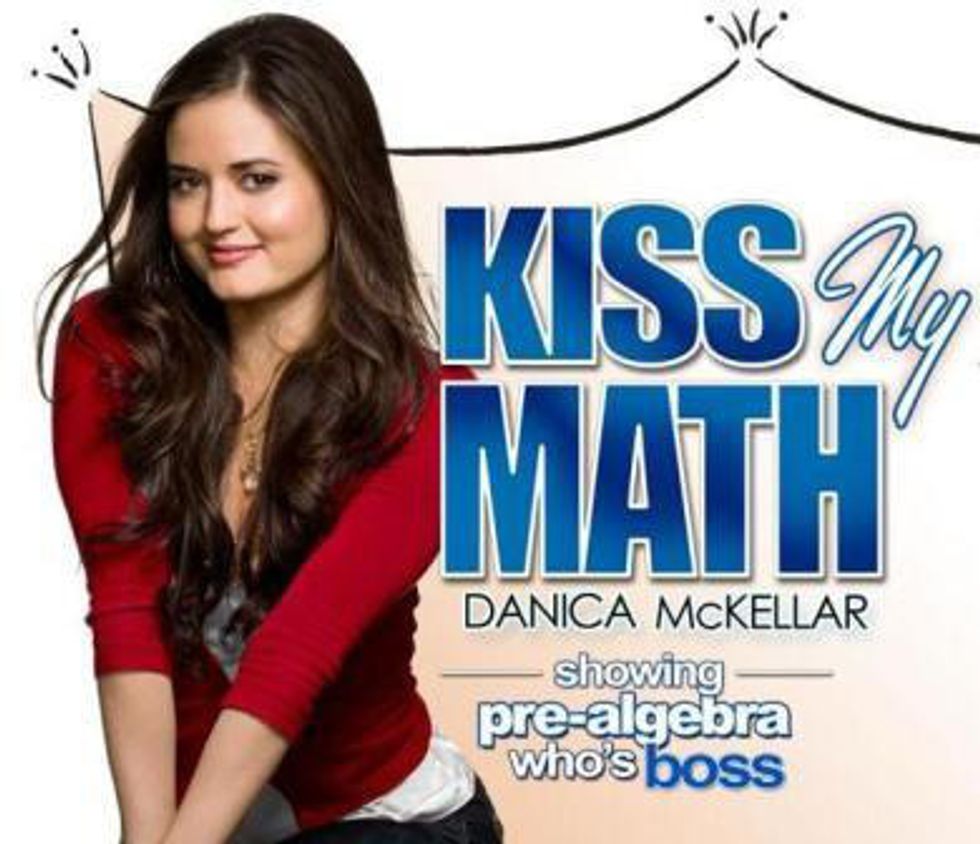Recently, I wrote about my own personal journey from hating math to loving it. One aspect I only lightly touched upon within that piece is a large topic of interest: stereotype threat.
What is stereotype threat?
The website ReducingStereotypeThreat.org defines stereotype threat as being at risk of conforming, as self-characteristic and as a negative stereotype about one's group. This term was coined in 1995 when several experiments showed that Black college freshman and sophomores performed worse than comparable white students when race was emphasized before they took the exam, but performed equivalently, or in some cases even better, when race was not mentioned.
So what does this have to do with math? Quite a lot. If you are part of a group considered unlikely to do well in mathematics, then you are likely to conform to that stereotype since you do not expect to succeed. And is there an expectation that certain groups will not succeed? Yes, unfortunately very much so.
Take this shirt for example. It checks off "traditionally girly" items such as shopping, music, and dancing, and whoops, look, she did not check off math. What's sad is this isn't remotely surprising. This message, that girls are either not interested in math or unable to do math, is perpetuated everywhere.
It's easy to say "It's just a shirt." Or maybe "It's just some stupid tweet." Or "oh, it just happens that the nerd is a guy in this show."
Any individual incidents would be not too bad. But, none of these things happen in a vacuum. We constantly see white male nerds over-represented in TV shows, often around woman who are considered less intelligent (with a few notable exceptions). Part of this might go even deeper into sexism, with the idea that nerdy woman must be unattractive, as well as TV shows and movies being sexist and not wanting to portray unattractive woman other than as jokes.
Danica McKellar is an exception, although on "The Secret Life of an American Teenager" they still did their best to objectify her by having her mistaken for a stripper before identifying her as a mathematician. Come on, seriously?
So in the end, there are way too many messages within media and society that tell us "woman can't do math", "people of __ race can't do math" or "math is for white boys." Moreover, they are used to generalize sexist ideals within all STEM subjects. With these messages perpetuated so often in various forms, is it any surprise that women and people of color are so underrepresented in the more computational and mathematical STEM subjects, even though we know there is no biological difference in ability?
These messages can be easily internalized. I remember when I was in high school, I usually thought I got lucky when I received a good score in math, rather than attributing it to studying, doing the homework, or anything else under my control. In college, I found out this is apparently common for women to credit external factors for their success. Much of the reason I decided to take a college physics and math course "for fun" was because I didn't trust that I was any good without an at-home tutor (my dad was my physics teacher and is a former math teacher). Because "girls can't be good at math," I never thought, huh, maybe my good grades and my five on the AP Physics exam might have a little to do with me and not just external factors. It seems so stupid looking back, but I just didn't know what stereotype threat and internalized sexism were, so how could I really express my feelings and realize they were unwarranted? In college, when I stopped internalizing the messages from media, I was no longer a victim of stereotype threat and was able to perform well in math and science.






















